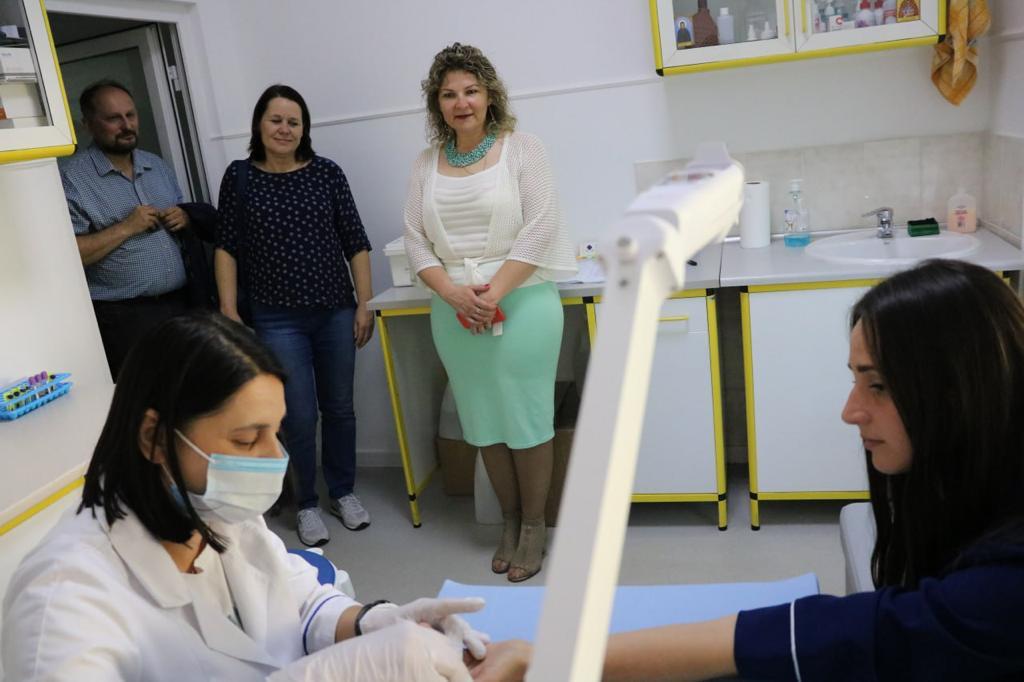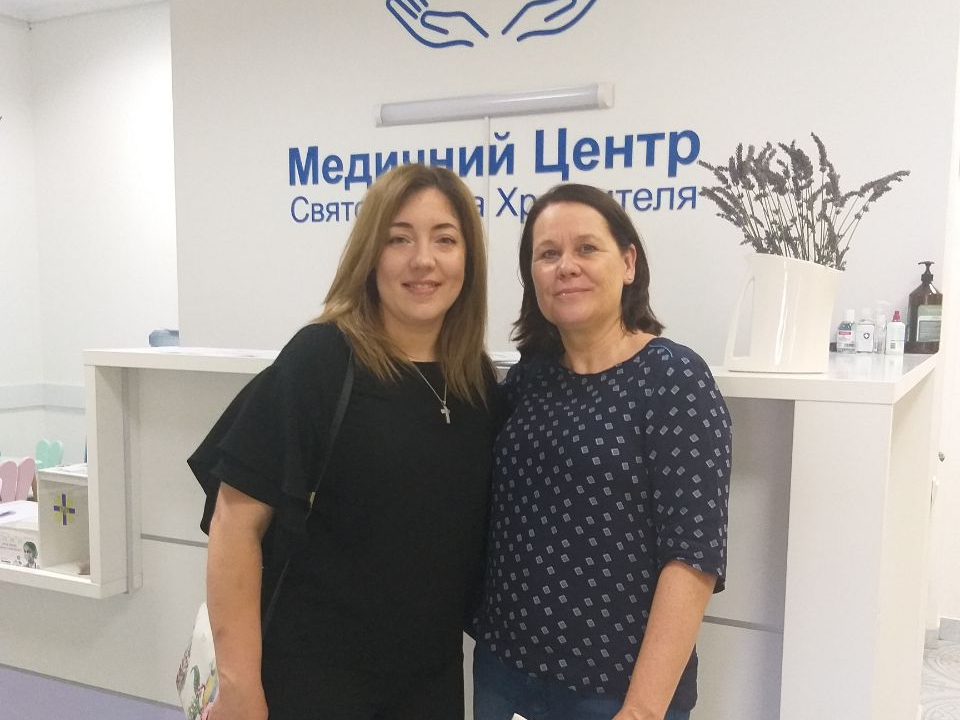Almost a year and a half after the escalation of the war in Ukraine, the growing number of people needing care, financial and logistical hurdles and damaged infrastructure, make the access to essential services more and more challenging. Together with Caritas Ukraine, Cordaid is establishing five medical centres this year to provide basic health care to Ukrainians who need it most.

The pilot project shows how emergency relief can go hand in hand with a holistic healthcare approach. The medical centres in Drohobych, Kolomyia, Brody, Khmelnytsky, and Nadvirna have general practitioners, specialists, paediatricians, nurses, therapists, laboratories and mobile teams for home visits.
A great start
“We have one clear task for this year”, says Khrystyna Semegen-Bodak, programme manager for Caritas Ukraine and head of the healthcare unit. “We need to get the five centres up and running and make sure we receive at least a thousand patients in each of them by the end of the project period. If we succeed, the government will provide us with more funds, which will allow us to establish more services. That’s how important this pilot is. Thankfully, we had a great start.”
Numerous clinics and other medical facilities in Ukraine have been destroyed. On top of that, many people have also lost their income, which makes much-needed care unaffordable for them. Even finding transportation to reach the medical centres can be a challenge.
Ukrainians who have experienced the violence themselves or have fled, in many cases suffer from mental health problems, such as depression, anxiety and post-traumatic stress disorder.
“It helps a lot that we feel the support from our European partners. It is also crucial because we were draining our resources fast.”
Passionate and involved
Cordaid’s humanitarian expert Inge Leuverink visited two medical centres this week and is impressed by the progress Caritas Ukraine has made since last April. “It strikes me how passionate the staff is and how involved they are in helping people”, Inge says. “They pay attention to many different needs. Not only medical but also psychological. They provide hygiene materials, food and care at home. Now that’s what I call holistic.”

Since the conflict broke out in the eastern part of Ukraine in 2014, Inge Leuverink has brought multiple visits to the country, meeting with various partner organisations and bringing support wherever she can. This gives her a good look at how the situation in Ukraine has been developing, both for the general population and for the humanitarian staff and volunteers.
“I’m confident our model of providing care will prove to be very effective and successful. I already see how we are inspiring our partners abroad.”
“People struggle with the economic crisis”, she notices. “Many things have become unaffordable and there are many displaced people who still need to find an income. During my visit to one of the centres, I came across a group of war victims. Seeing the amputated legs and prostheses, suddenly brought the war very close. The government cannot provide the necessary health care for everyone. It is so important that Cordaid and Caritas Ukraine can step in and provide basic care to people who need it most: displaced persons, the elderly, the chronically ill, the handicapped.”
Working towards a dream
Khrystyna, a medical professional and a mother of a 16-year-old daughter and an 8-year-old son, shares what it is that keeps her, her staff and the Ukrainian people going. As the wife of a mobilised military major in the medical service and the owner of a family medical business in the southern city of Kherson that was tragically damaged by a missile strike, she draws strength and determination from her experiences.
Despite the heart-wrenching loss, Khrystyna remains dedicated to her profession and the well-being of her community, serving as an inspiration to others in her unwavering commitment to making a positive impact in people’s lives. “I know we will never live the way we did before”, Khrystyna says. “We already lost so much. Friends, family, money. But we keep working towards our dream. We want to win this war and we want to be independent. It helps a lot that we feel the support from our European partners. It is also crucial because we were draining our resources fast. I’m confident our model of providing care will prove to be very effective and successful. I already see how we are inspiring our partners abroad.”